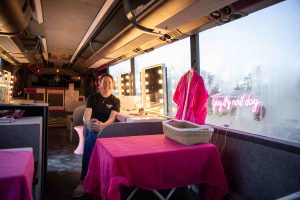Northern Powerhouse Investment Fund II: Championing Female Led Businesses in the North


Sue Chambers
By Sue Chambers, River Capital investment manager, NPIF II.
The economic landscape of the North is being transformed through investment that not only boost regional growth but also addresses longstanding inequalities among business owners. The Northern Powerhouse Investment Fund II (NPIF II), a £660 million initiative, is proving to be a catalyst for inclusive economic development, including through its smaller loan’s component delivered by River Capital and GC Business Finance across Cumbria, Lancashire, Liverpool City Region, Cheshire and Greater Manchester.
At the end of our first year of delivery, the statistics reveal a promising trend: of the 32 businesses supported through the fund, 41% are either entirely female led or have at least one founder who is a woman. When you consider that the combined River Capital and GCBF portfolio of female led SMEs through the fund predecessor, NPIF 1, was 23%, this indicates a shift in an ecosystem that has historically underserved women entrepreneurs.
Breaking Barriers in Business Funding
The traditional funding landscape has presented barriers for female entrepreneurs with research consistently showing that women-led businesses receive significantly less investment than their male counterparts, despite demonstrating comparable or superior performance metrics. Our 41% allocation to female led SMEs signals an improvement towards correcting this imbalance.

Rebecca McGregor
This is happening by ensuring we make significant effort into building our professional networks with a focus on developing opportunities with female business leaders, alongside GC Business Finance and that we are not simply engaging in tick box diversity efforts, but making sound investments, that will drive growth, create jobs and provide equal opportunity. Diverse businesses bring varied perspectives, innovative solutions, and access to untapped markets, creating a stronger northern economy.
Economic Imperative for Diversity Supporting female led and minority owned businesses isn’t just a matter of an ESG agenda, it’s essential for a strong and varied economy. These founders often bring unique perspectives that identify market gaps that haven’t been taped. Lancashire based Kidz Party Bus is a fine example. Led by Rebecca McGregor, they are bringing a unique party experience to children across the North West and due to their mobility and products are fully booked well into 2026. Their success and the success of those like them contributes to a more resilient and adaptive regional economy.
The North of England, with its industrial heritage and ongoing economic transformation, cannot afford to overlook any source of innovation and growth. By ensuring that capital flows to the most promising ventures, regardless of founder demographics, the northern region positions itself for sustainable prosperity.
Beyond Gender: The Case for Wider Inclusion
While the 41% female leadership statistic is encouraging, the principle extends to other underrepresented groups. Minority led SMEs face similar funding challenges despite their potential to create jobs, drive innovation, and build wealth in areas that need it most.
The smaller loans component of NPIF II is particularly vital in this regard, as it often provides crucial early stage capital that enables businesses to establish proof of concept, build operational capacity, and position themselves for larger rounds of investment. Liverpool’s Green Bell Packaging, led by Vahid Nagori is a testament to this. Director and founder of the sustainable packaging supplier, Vahid has created jobs, contributed to an environmental issue and has developed a business that is now engrained in the North West economy and has utilised funding from both NPIF I and NPIF II to do so.
Looking Forward
The work of River Capital and GC Business Finance in delivering the NPIF II across the North West exemplifies how investment can support addressing regional economic development and inequalities. Our approach demonstrates that inclusive funding practices don’t harm the economy, they help to enhance them.
As the fund continues its work, maintaining and expanding this commitment to diversity will be essential. The 41% female leadership figure should be celebrated but also viewed as a foundation upon which to build upon.








